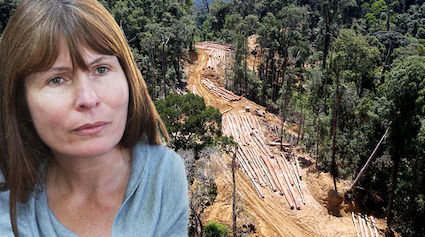Malaysian palm oil bosses urge action against ‘toxic’ environment groups

(FMT) – Malaysian palm oil industry officials on Tuesday urged the government to take action against environmental groups critical of the commodity, with one executive calling them “toxic entities”.
The cultivation of oil palm, whose product is used in everything from ice cream to lipstick, is blamed for large scale deforestation in Southeast Asia and for endangering wildlife, such as orangutans and pygmy elephants.
Indonesia and Malaysia are the top two producers of palm oil.
Environmental groups, especially in Europe, have called on growers to be more sustainable, and the European Union last year legislated to phase out palm oil use in renewable fuel by 2030 because of concerns about deforestation.
Franki Anthony Dass, chief adviser and value officer at Sime Darby Plantation, the world’s biggest palm oil company by land size, said non-governmental organisations (NGOs) were orchestrating attacks on palm oil.
“If they are so unfriendly, why allow them to be in our countries Malaysia and Indonesia,” he said at an industry forum in Kuala Lumpur. “We have the right to control this and do something drastic for once.”
Franki said the industry has made great strides in meeting sustainability standards, but the NGOs often changed their demands.
His comments followed a question from Yusof Basiron, executive director of the Council of Palm Oil Producing Countries, who asked government officials on a panel if they would take any action against the NGOs. He called the NGOs “toxic entities” for their stance on palm oil.
Shamsul Iskandar Mohd Akin, the deputy minister in charge of the palm oil portfolio, said his ministry will promote the message of sustainability in the industry.
Another ministry official said the government was not looking to sideline NGOs and would work with them to address their concerns.
Malaysia and Indonesia have hit back against the criticism and have vowed to set up a joint fund to counter critics.
Last week, Indonesia’s environment and forestry ministry said it had ended a 25-year conservation agreement with the WWF conservation body because the group allowed a forest where it operated to burn. A ministry official also criticised a WWF social media campaign that criticised the government over forest fires.
A US journalist, who has written stories about environmental destruction in Indonesia, was deported last week after being arrested over alleged visa violations.

